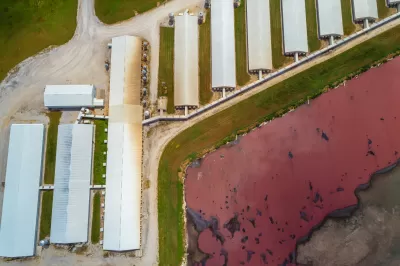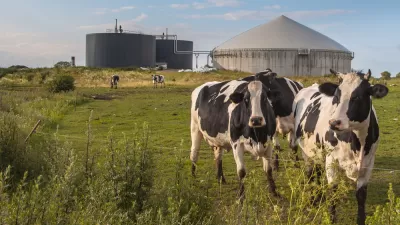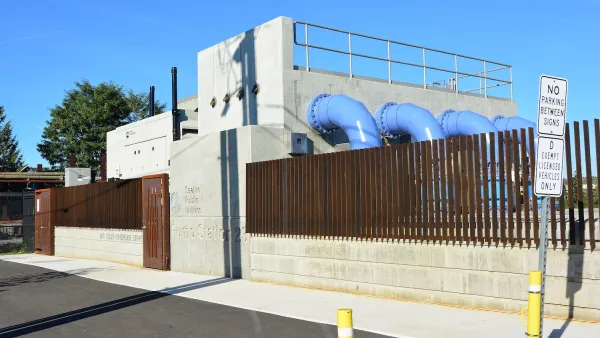A recent court decision has granted Michigan regulators full authority to hold animal agriculture accountable for manure runoff into waterways.

A recent Michigan Supreme Court ruling has granted the state’s Department of Environment, Great Lakes, and Energy full authority to require industrial animal agriculture to take stronger action to address manure runoff into waterways, according to an article in Great Lakes Now. The decision could have major implications for water quality in the state, which has close to 300 concentrated feeding operations, or CAFOs. Each year, these CAFOs produce most of the 4 billion gallons of untreated urine and feces generated by cows, hogs, chickens and turkeys across the state, reports Keith Schneider.
Discharge from CAFOs, which contains toxic levels of nitrates, phosphorous, and E.coli bacteria, leach into surface and groundwater across Michigan and contribute to the phosphorus pollution that causes toxic algal bloom in Lake Erie. Until now, the agricultural industry, including the Michigan Farm Bureau, has pushed back against stronger regulations, which they say will make it harder for farmers to do business in the state. EGLE has not yet made decisions on next steps, but Great Lakes Now reports it can now take a range of actions. For example, it might require CAFOs to treat manure in wastewater facilities before it’s spread on fields or install sensing and monitoring networks to detect leaks in manure storage takes and lagoons. “And the agency could also require animal agriculture to meet state limits for phosphorus, bacteria, and other pollutants in state waters’ and could limit the number of animals housed in a CAFO,” Schneider writes.
Regardless of next steps, it’s a big win for environmental advocates.
FULL STORY: U.S. Movement to Limit CAFO Pollution Emboldened by Michigan Court Ruling

Planetizen Federal Action Tracker
A weekly monitor of how Trump’s orders and actions are impacting planners and planning in America.

Congressman Proposes Bill to Rename DC Metro “Trump Train”
The Make Autorail Great Again Act would withhold federal funding to the system until the Washington Metropolitan Area Transit Authority (WMATA), rebrands as the Washington Metropolitan Authority for Greater Access (WMAGA).

DARTSpace Platform Streamlines Dallas TOD Application Process
The Dallas transit agency hopes a shorter permitting timeline will boost transit-oriented development around rail stations.

San Francisco's School District Spent $105M To Build Affordable Housing for Teachers — And That's Just the Beginning
SFUSD joins a growing list of school districts using their land holdings to address housing affordability challenges faced by their own employees.

Car-Centric LA Suburb Looks to a Train-Oriented Future
City leaders in Rancho Cucamonga, the future western terminus of the Brightline West rail line to Las Vegas, want to reimagine the city as a transit-oriented, pedestrian-friendly community.

New Alaska Bitcoin Mine Would Burn as Much Energy as the State’s Largest Coal Plant
Fueled by “stranded” natural gas, the startup hopes to become the largest in the US, and to make Alaska an industry center.
Urban Design for Planners 1: Software Tools
This six-course series explores essential urban design concepts using open source software and equips planners with the tools they need to participate fully in the urban design process.
Planning for Universal Design
Learn the tools for implementing Universal Design in planning regulations.
Municipality of Princeton
Roanoke Valley-Alleghany Regional Commission
City of Mt Shasta
City of Camden Redevelopment Agency
City of Astoria
Transportation Research & Education Center (TREC) at Portland State University
US High Speed Rail Association
City of Camden Redevelopment Agency
Municipality of Princeton (NJ)





























